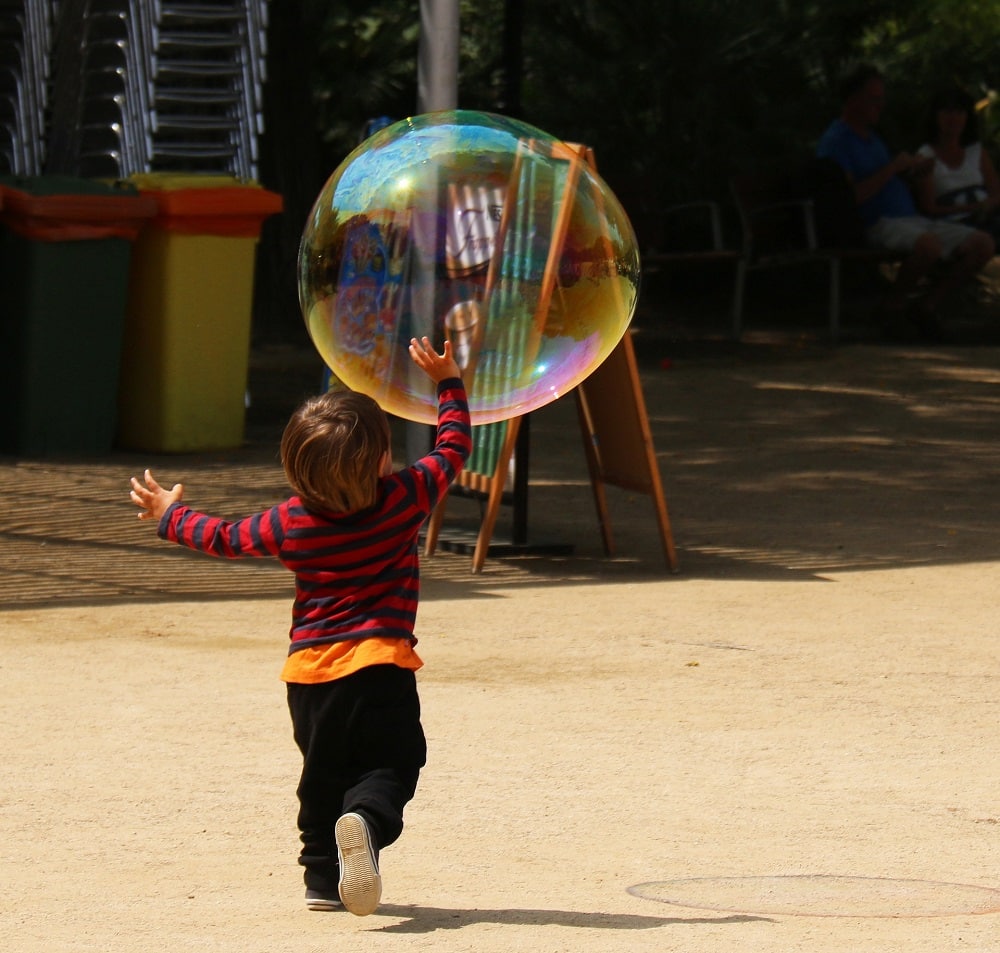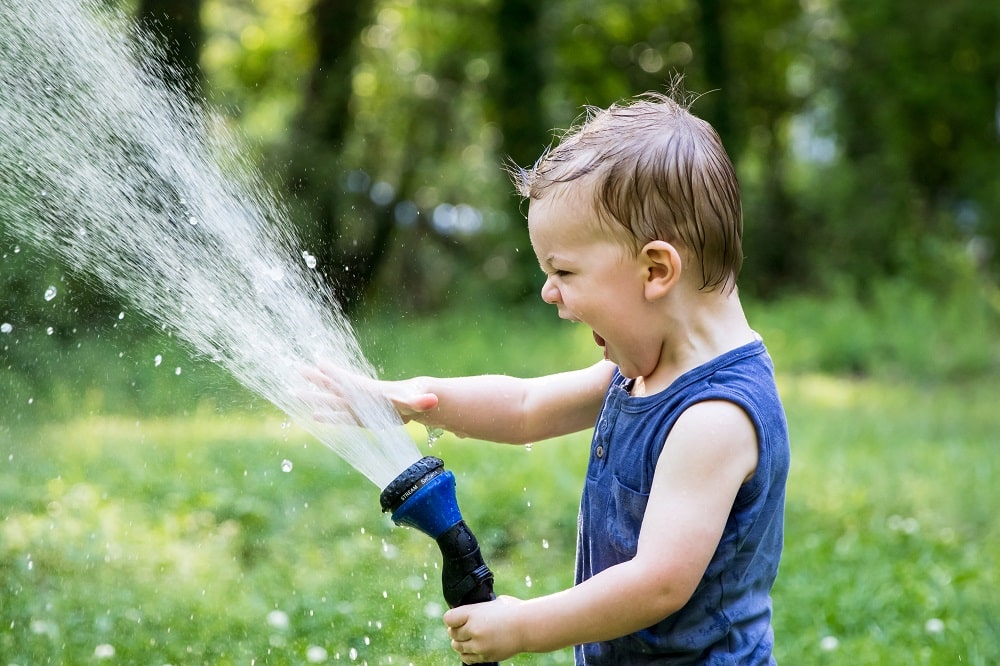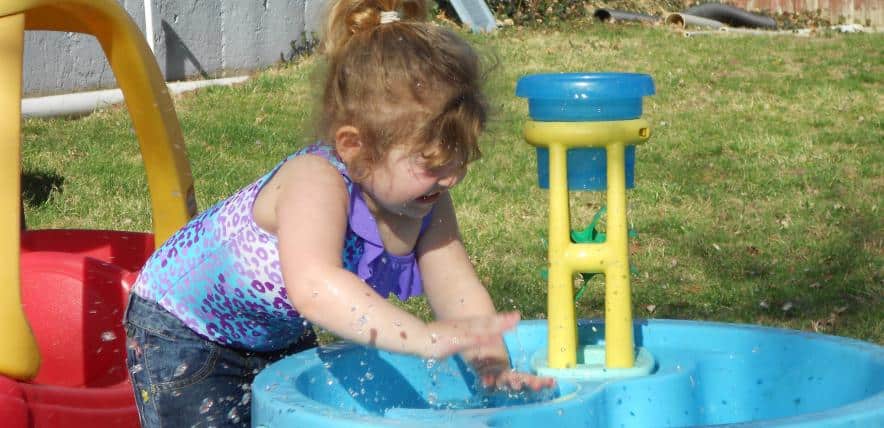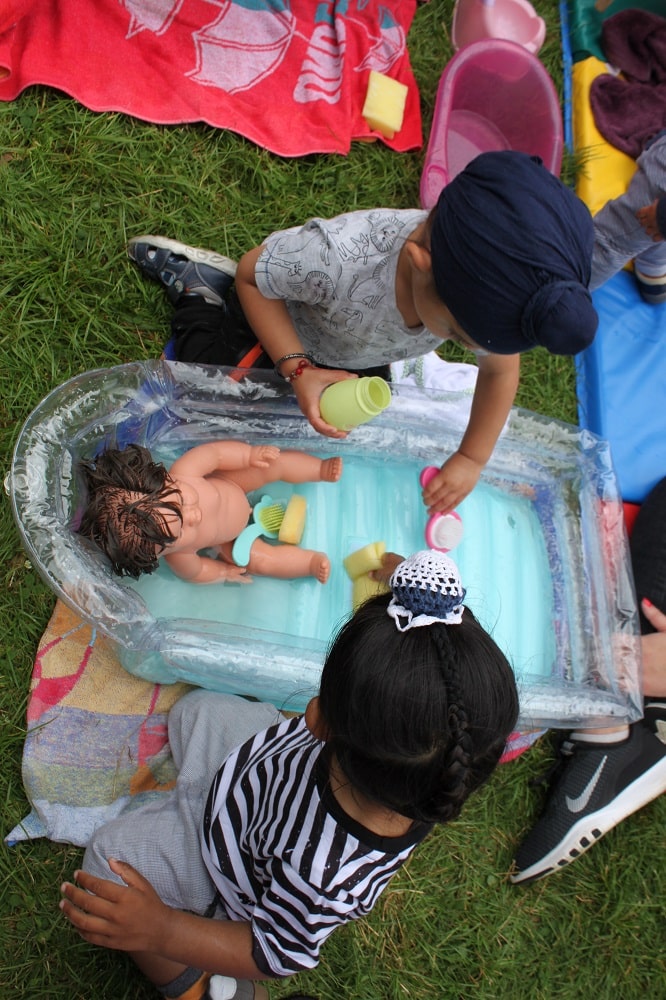Mary Horn, founder and director of Curious Fox Company, shares her suggestions on keeping water play activities fresh and full of fun — with plenty of learning opportunities too!
REMEMBER – NEVER LEAVE YOUR CHILD UNATTENDED NEAR WATER!!!
On hot days water play is the perfect way to cool off, offering children both enjoyable and educational experiences, and providing them with the opportunity to sing, splash and explore. To ensure you make the most of this natural resource here are five ways to enhance your water play this summer.
Up-Up and Away
Bubbles continue to delight across the generations. Whether it’s blowing their own, using a bubble machine or adding bubbles to their water, foams or delicate bubbles never fail to prompt new words while having fun. Just imagine the discussions you will have on floating, pouring, blowing and mixing – to say nothing of watching the bubbles float away in the wind!
Why not add some food colouring to the soapy liquid and include some whisks? Use this as a chance to expand the children’s thinking and talking on subjects such as rainbow colours and the effects of wind or blowing.
Ice and seek
Playing with ice on a hot day will certainly get your children squealing but it also encourages the joys of a new sensation.
It is also fun to freeze natural objects and add them to warm buckets of water. Can the child guess what the water will reveal when it melts?
Curious children
Offer children brushes, sponges, jugs and pots with their water play and using them in the water will further a child’s sensory experience, such as soaking up the foam with a soft sponge and squeezing it or using water to paint on the walls. These skills go a long way to mastering pincer-grips, as well as generally helping to develop their fine and gross motor skills and hand-eye coordination.
Problem solving
Children love exploring new substances and making their own discoveries. Observing how certain objects float, sink or disappear entirely during partial water play encourages them to consider how and why things happen and try to explain them.
Collect a variety of materials during a nature walk and then encourage your child to make predictions on which objects will float or sink. Why do you think a stone will sink? If a stone sinks, will the feather sink too? Why? Do all heavy things sink? What about a boat?
Role Play
Children thrive in their learning when they play with things that are both familiar and new. Everyday items can be easily integrated into a child’s play in a natural way, encouraging them to use their imagination for language, curiosity and creativity. Try adding tea pots, cups, spoons, and sieves to the children’s water play. Sliced lemons, cucumbers and limes also provide another sensory dimension to their exploration of their ‘everyday world’.
Mary Horn is the founder and director of Curious Fox Company, an award-winning family business with expert knowledge in early years learning, play resources and treasure baskets.






